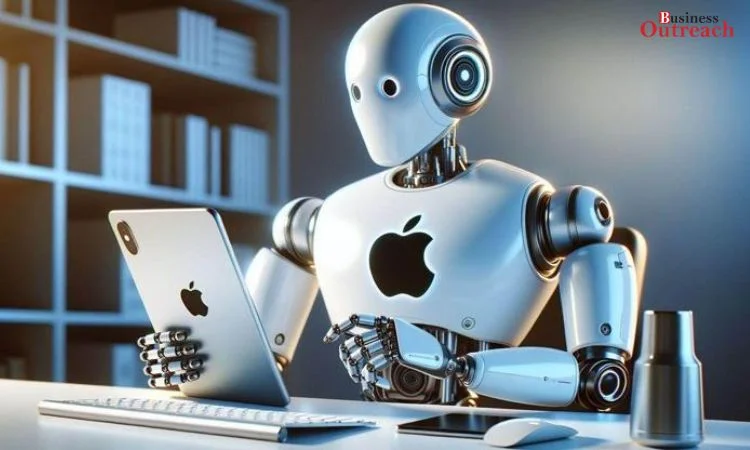While technologies like AI and machine learning have been rapidly evolving, Apple’s virtual assistant Siri has seemingly remained stagnant over the years. As AI chatbots from competitors like Google and Amazon have advanced to become highly conversational, Siri still feels quite limited in its capabilities. However, it seems Apple now has big plans to power up Siri and transform it into a leading AI assistant.

According to recent reports, Apple is focusing heavily on AI development and plans to showcase major enhancements to Siri at its upcoming Worldwide Developers Conference next month. It is believed that a new, more conversational Siri will be unveiled that leverages generative AI for more natural back-and-forth dialogues. This would represent a significant upgrade from Siri’s current form which is better suited for quick question-answering rather than fluid discussions.
The Motivation for Change
The motivation for enhancing Siri comes from Apple executives like Craig Federighi and John Giannandrea realizing Siri has fallen behind competitors after testing chatbots like ChatGPT from OpenAI. They saw firsthand how far natural language processing has progressed and understood that Siri needs a major overhaul to its underlying systems. No longer would incremental improvements be enough to keep up – a full rework was needed.
While Siri has focused on optimizing existing tasks, chatbots today can discuss a wide range of topics, answer complex questions, and generate human-like responses. Being able to have a back-and-forth conversation on any subject is a level of versatility Siri currently lacks. This left users with the impression that Siri is antiquated compared to the fluid dialogue possible through assistants from Google, Amazon, and Microsoft.
Apple recognized it must modernize Siri’s architecture if it wants to remain competitive. Continuing down the current path would only see the virtual assistant fall further behind as AI language models advance at a rapid pace. A bold change was compulsory to close the capability gap with market leaders and provide users an AI experience on par with the best in the industry.
The Plan for Siri’s Comeback
To achieve this, Apple is developing a new generative AI system for Siri powered by cutting-edge natural language processing techniques. The goal is to allow for natural back-and-forth conversations rather than limiting interactions to discrete questions. Siri will gain the ability to discuss topics at length, answer multifaceted inquiries, and generate human-like responses based on context.
This represents a major philosophical shift from Siri’s original design as a question-answering tool to a full-fledged conversational agent. Users will be able to have fluid discussions covering any subject rather than needing to phrase everything as a question. Responses will feel more human and less rigidly formatted.
In addition, Apple plans to deeply integrate this new AI technology directly into iPhones through on-device processing rather than offering it as an optional app. This will give Siri a massive user base of over two billion active Apple devices to learn from. Data can be processed locally on hardware rather than needing an internet connection which improves privacy too.
With AI capabilities built directly into iPhones, Siri enhancements will be accessible to all and can take advantage of personalization features. The assistant can become more familiar with individual users over time. Coupled with Apple’s focus on privacy and security, this positions Siri as a trusted AI to rely on for various tasks.
Also Read: How Apple’s AI Ambitions Could Transform the iPhone
An Edge in Hardware
Beyond software, Apple also has an edge through its world-class silicon design team. The powerful chips in iPhones and Macs allow for sophisticated AI processing locally on devices. This helps offload neural network computations from remote servers for improved performance and privacy.
State-of-the-art silicon like the M1 and A-series provides ample power for running resource-intensive AI models. Advanced features like the NPU (Neural Processing Unit) are specifically optimized for tasks like computer vision and natural language understanding. Hardware acceleration gives Apple an advantage in deploying complex AI models compared to competitors reliant solely on cloud services.
With control over both hardware and software, Apple can tightly integrate all components for maximum optimization. AI capabilities can be developed hand-in-hand with custom silicon designed specifically for the task. This level of low-level hardware-software co-design affords Apple benefits that may not be easily matched by competitors.
Closing the Gap on Leaders
If Apple delivers on its plans, Siri has the potential to rapidly close the gap with market-leading AI assistants. A next-generation architecture combining generative AI with on-device processing positions Siri for a major revamp. The virtual assistant may transform from a simple question-answerer into a conversational agent capable of natural discussions.
With over a billion active devices to learn from, Apple’s massive scale provides a rich data source for AI models to be trained on. Hardware acceleration from the company’s powerful chips gives Siri an edge for running complex neural networks locally. And tight hardware-software integration optimized for AI tasks could give Apple an advantage that may be difficult for others to replicate.
Of course, the proof will be in the execution. Apple will need to carefully design its new AI systems and generative models to avoid harmful, unethical, or dangerous responses. Extensive testing and safeguards will be required to ensure privacy and security too. But if done right, Siri has a genuine opportunity through this overhaul to not only catch up but potentially even surpass competitors in the conversational assistant space. The stage is set for Apple to make a serious play in the booming AI market.
The next few years will be telling as Apple’s plans come to fruition. But with its ambitions clearly laid out and massive resources behind it, Siri’s revival seems imminent. The virtual assistant long overdue for a revamp may finally get its day in the sun. And in the process, Apple aims to reassert itself as a serious contender in the development of leading-edge artificial intelligence.















